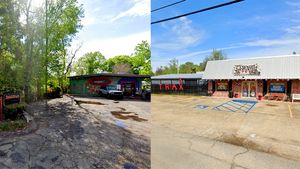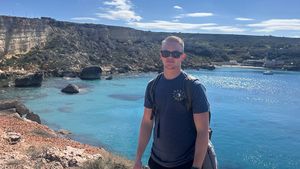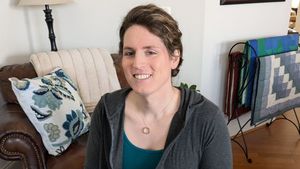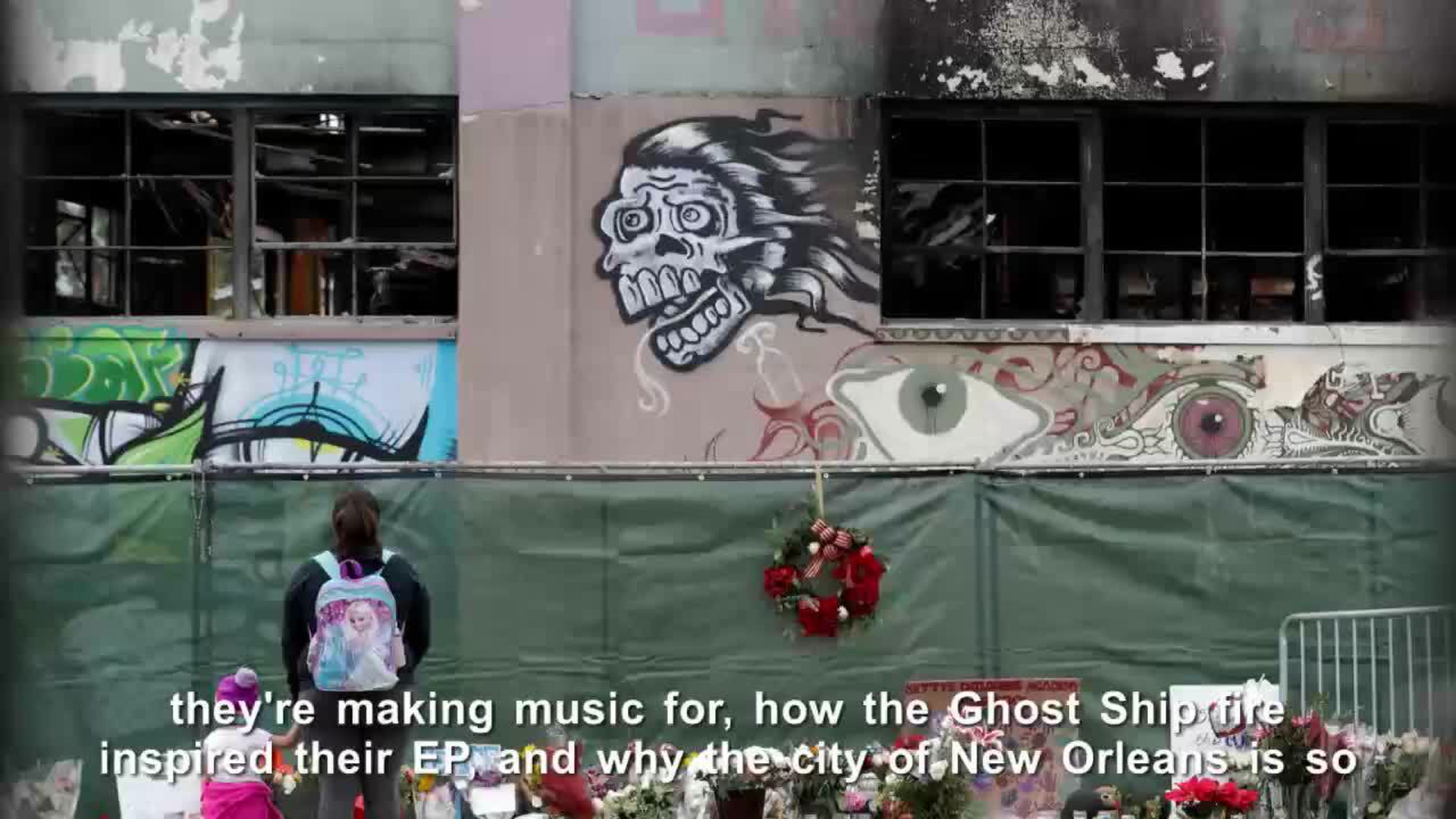Lo-fi New Orleans electronic punk project Softie's new EP, After All This Time, is practically bleeding with pain, lust and naked emotion. The duo, comprised of artists Nessa and Xavier Juarez, talked to OUT about who exactly they're making music for, how the Ghost Ship fire inspired their EP, and why the city of New Orleans is so important to their sound.
OUT: Are you making music primarily for queer people?
Softie: Yes, we make music for queers. Particularly shedding sounds that lean towards a non-heteronormative crowd, exposing an experience that we feel isn't normally heard.
What makes music queer to you?
Queer music reflects queer lives. Movements in electronic and experimental music have always relied on queer genius. Dance music and club culture are central to our communities. Queer DIY shows provide a platform for performers without formal training or experience, so there's room to be weird and develop ideas publicly. Softie's music is informed by all of these queer realities.
Tell me about the song "Mujeres."
The words I speak at the beginning of "Mujeres" deal with the precariousness of life for trans women and the sacred realness of death. I wrote it for Cash and Feral who died in the Ghost Ship fire, for Chyna and Ciara murdered here in New Orleans, and for all trans women forced out of this world by misogyny, white supremacy, indifference, and greed. I wrote it to voice my grief and the worry I carry for loved ones still living. The dominant culture denies death and makes every effort to distract us from it. Our intimacy with death drives us to live more honest lives, to love more deeply, and to be more free.
Xavier: I wrote the second half in honor of the women who were apart of my upbringing, on Shotwell Street in the mission district of San Francisco. Their power and presence that imprinted upon me, even still after some have departed.
How has living in New Orleans influenced your music?
Living in New Orleans has been extremely transformative to our music, it's definitely site specific to our EP. The fog, the thick humidity, and the sensation of sometimes feeling like you're in a noir help add texture to our sounds. Xavier spends a lot of time on the back of his partner Tony's motorcycle, going on night rides aimlessly. He narrates the interludes. The queer community has an embracing relationship with electronic music and punk DIY spaces. It is almost serendipitous that Softie was formed here. Xavier wrote the song "Lost Gay Beach" after the Pulse Night Club tragedy, feeling saddened by how the QTIPOC folx were disempowered by the news and our state and depicting a fictitious lost beach were they could claim sanctuary.
Is softness implicitly queer? Is queerness implicitly soft?
Softness is queer to us. Being called sensitive as a kid was used as a way to demean Xavier. To toughen up. We want to show that sensitivity is not a weakness but a strength, and that it could an empathetic power.


























































































